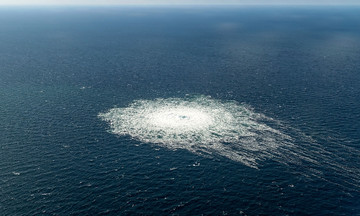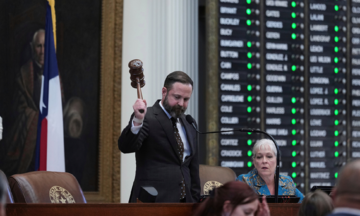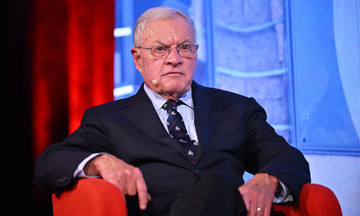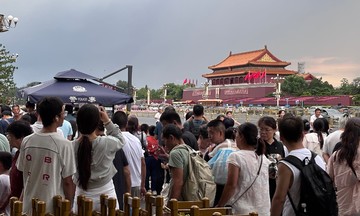On 24/7, during a visit to the Federal Reserve (Fed) headquarters in Washington, D.C., with Fed Chair Jerome Powell to inspect renovations, President Trump caught Powell off guard by accusing the project of exceeding its budget. "We looked and it seems to be $3.1 billion, it’s gone up a little, or a lot. It was $2.7 billion and now it’s $3.1 billion," Trump said. Powell, known for his composure, appeared surprised, shaking his head repeatedly and turning to Trump with a puzzled look. "I'm unaware of that. I haven't heard anyone at the Fed talk about a cost figure like that," Powell interjected.
Trump then produced a folded piece of paper from his pocket and handed it to Powell. Seemingly unprepared, Powell scrutinized the paper, eventually realizing the high cost included the completed renovation of the Martin Building.
This element of surprise is a recurring tactic. In May, while hosting South African President Cyril Ramaphosa in the Oval Office, Trump abruptly requested the lights be dimmed. As Ramaphosa and the press looked on, Trump played a four-minute video, claiming it was "evidence of black South African politicians calling for the oppression of white people." "You allowed them to take land and kill white farmers. And when they kill the white farmers, there’s no repercussions," Trump said.
Similarly, during a late February Oval Office meeting with Ukrainian President Volodymyr Zelensky, Trump waited until Zelensky became angered by Vice President JD Vance's lecture before launching his own attacks.
In each instance, cameras captured Trump's counterparts appearing flustered, surprised, or drawn into arguments. Observers note this is Trump's frequent tactic to elicit reactions that benefit him. This approach puts officials, both domestic and foreign, accustomed to public decorum, in difficult positions, turning meetings into reality-show-like dramas, according to WSJ commentators.
"What do you think? This will be great television, I’m sure of it," Trump told reporters after his February exchange with Zelensky.
Those who have worked with Trump say he tends to press foreign leaders, probing for weaknesses and seeking to catch them off guard. One source familiar with the matter said Trump has confidence in his improvisational skills, viewing testing others' reflexes as an "art." A White House official stated that before these surprises, Trump often simply says he wants the public to see what happens behind closed doors, ensuring "transparency."
However, this tactic can backfire. Zelensky's visible frustration after being pressured by Trump and Vance strained US-Ukraine relations for weeks. The video shown to Ramaphosa became news for the White House's misrepresentation of racial allegations in South Africa.
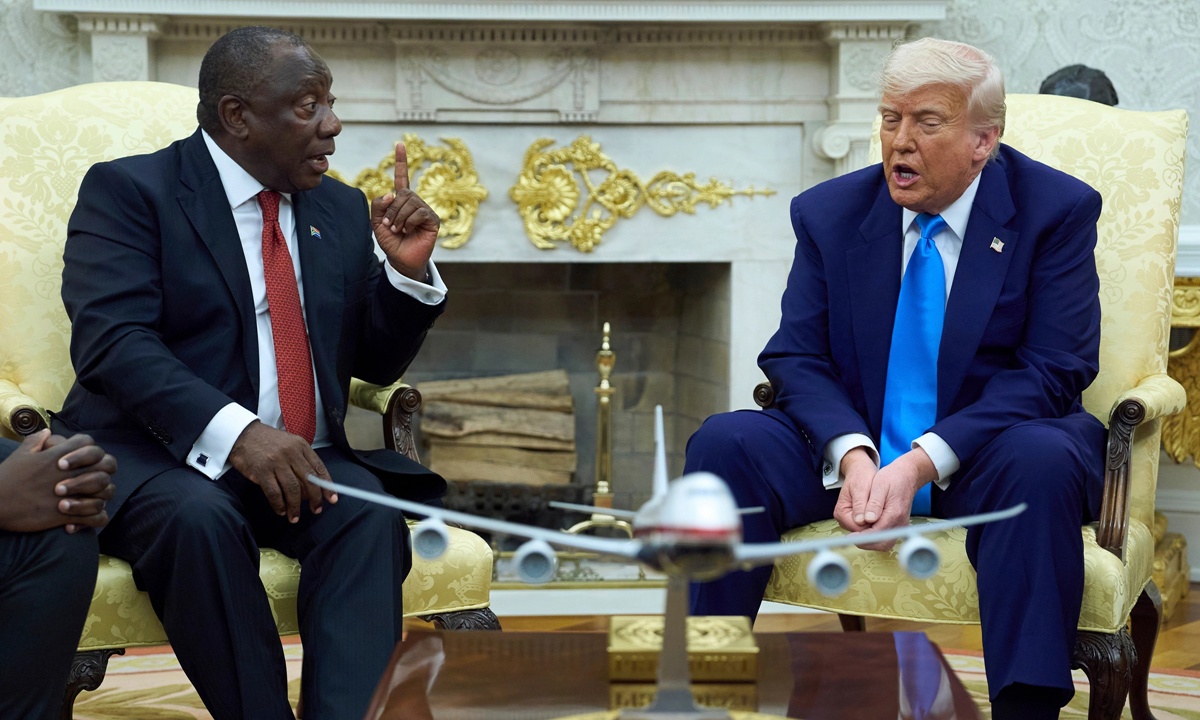 |
South African President Ramaphosa (left) and President Trump at the White House on 21/5. *Photo: AP* |
Aware of Trump's unpredictable nature, world leaders have shared experiences and studied recent Oval Office meetings. After Trump unexpectedly invited the press to a working lunch with Italian Prime Minister Giorgia Meloni, she advised European colleagues to be prepared for anything. But not everyone is ready for Trump's tactics, according to WSJ analysts Meridith McGraw and Annie Linskey.
In April, Michigan Governor Gretchen Whitmer was taken aback when White House aides abruptly ushered her into the Oval Office as Trump signed executive orders launching investigations into his political critics, with reporters present. Whitmer, a Democrat, tried to shield her face with a folder, but Trump asked her to speak. "I was brought into a meeting that I thought was going to be one-on-one. And I walked into the room and quickly realized it wasn't. I grabbed one of his staffers and said, ‘What’s going on?’" Whitmer later recounted on a podcast.
She clarified upon leaving the Oval Office that she wanted no association with Trump's executive orders. When Trump visited Selfridge Air National Guard Base in Michigan in late April to commemorate his first 100 days of his second term, Whitmer was again surprised when he invited her on stage to speak. For Trump, such surprises provide him the upper hand, often unsettling his counterparts, experts say.
During the 2016 campaign, Trump and his advisors, including chief strategist Steve Bannon, surprised Democratic opponent Hillary Clinton and her team just before a presidential debate by holding a press conference with four women who had accused former President Bill Clinton of sexual misconduct. These women were then seated in the audience, visible to television cameras, adding to Clinton’s discomfort.
Vu Hoang (*Via WSJ, AFP, Reuters*)



